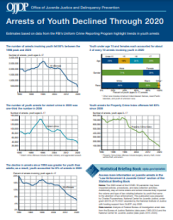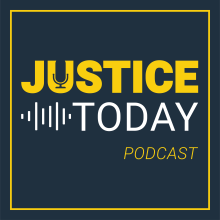Offenses
Improving Strategies for Investigating & Prosecuting Hate Crimes: A National Yet Local Approach
Understanding the Criminal Justice and Health Care Needs of Latinx Victims of Hate Crime and Bias Victimization
Evaluation of the Occurrence and Associative Value of NonIdentifiable Fingermarks on Unfired Ammunition in Handguns for Evidence Supporting Proof of Criminal Possession, Use and Intent
Real-Time Sample-Mining and Data-Mining Approaches for the Discovery of Novel Psychoactive Substances (NPS)
Breaking the School-to-Prison Pipeline: Implications of Removing Police from Schoolsfor Racial and Ethnic Disparities in the Justice System
Resiliency Against Victimization: Results From the National Longitudinal Study of Adolescent Health
Exposing School Employee Sexual Abuse and Misconduct: Shedding Light on a Sensitive Issue
Just Science Podcast: Just a Curious Case of Print Persistence
Gun Wars and Community Terrorization: Investigating Longitudinal Gang Violence in New Jersey from a Networked Perspective
Arrests of Youth Declined Through 2020
What's Possible with Rapid DNA Technology?
NIJ scientist Tracey Johnson joins science writer Sarah Michaud in this episode. They discuss Rapid DNA technology, and Tracey explains the complexities of this technology – its pitfalls and its possibilities.
Reading and Resources from NIJ:
Tribal Crime, Justice, and Safety, Part 2
Stacy Lee Reynolds and Christine (Tina) Crossland continue their discussion of tribal crime, justice, and safety, including how Native American persons experience crime victimization at higher rates than non-Native people and the jurisdictional complexities in responding to tribal crime, justice, and safety. Read the transcript.
Listen to the first half of Stacy and Tina’s discussion.
Reading and Resources from NIJ
Tribal-Researcher Capacity Building Grants
Contextual Influences on the Sentencing of Individuals Convicted of Sexual Crimes
What Constitutes Success? Evaluating Legal Services for Victims of Crime, Final Site Report: Arizona Voice for Crime Victims
Tribal Crime, Justice, and Safety
Tribal Crime, Justice, and Safety, Part 1
Research indicates that Native American persons experience crime victimization at higher rates than non-Native people. Furthermore, the unique position of American Indian and Alaska Native tribes as both sovereign nations and domestic dependents of the U.S. creates jurisdictional complexities in responding to crime, justice, and safety. Senior social and behavioral scientist Christine (Tina) Crossland discusses NIJ’s research on these topics, especially on the prevention of violence towards American Indians and Alaska Natives. Communications Assistant Stacy Lee Reynolds hosts.






